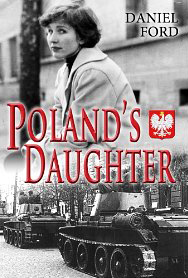 Poland’s Daughter: How I Met Basia, Hitchhiked to Italy and Learned About Love, War and Exile
Poland’s Daughter: How I Met Basia, Hitchhiked to Italy and Learned About Love, War and Exile
By Daniel Ford
Warbird Books
2014
Poland’s Daughter is Daniel Ford’s reminiscence about a brief interlude in his life when, as a student at the University of Manchester in 1955, he met a young woman with impossibly blue eyes, “like cornflowers in the summer fields.” Basia Deszberg was to remain his muse for another half century.
Dan Ford is a conjurer of literary magic. In just over 200 pages, he tells a tale that is sad and funny, innocent and wise; he weaves together tragedies great and small, the many facets of love and loss, commentary on peace, war and cultural differences. And he does all that with an artist’s touch, creating not just images but atmosphere, personalities, and dramatic tension.
The book is a delight on every level: its style, humor, its delightful young people, and the revelation that the best love is the one that leaves you wanting more. But let’s begin with his opening sentence:
“I’m not sure whether my love for Poland led me to Basia,
or it happened the other way around.”
Like an obligato in a musical composition, we also hear Basia’s essential voice.
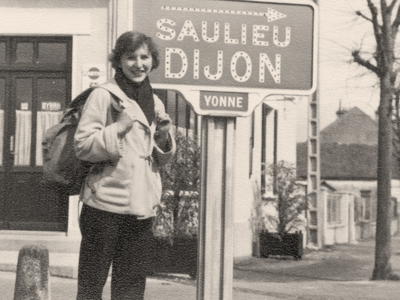
Basia
He met Basia in “the Caf,” where students gathered to talk and smoke. Dan was on a Fulbright stipend so considerably more affluent than the others, a situation he had never experienced before. Despite the cold and damp of Manchester, only he owned an overcoat. Indeed everybody seemed to own only one outfit, which didn’t appear to matter at all. Basia, he later learned, had less than the rest of them.
Basia Deszberg enchanted him at first sight: those cornflower blue eyes of course, but also that trace of an accent, all the more charming considering she also spoke Polish, Russian, Farsi, Italian and French. She was the first multilingual person he had ever met, as well as the most traveled. By contrast, Dan was a country boy from New Hampshire where very few people traveled even so far as Boston.
They spent most of their time with their fellow students, occasionally taking in a movie, notably Fellini’s La Strada. And then, one day Basia announced that she had been accepted at the Universita per Stanieri, the School for Foreigners, in Perugia. “Who wants to come?” she asked. Dan immediately cancelled his plans to return to the U.S.
Of course, he first had to pass a Polish family inspection and assure them that he understood his role as a protector. And nothing else.
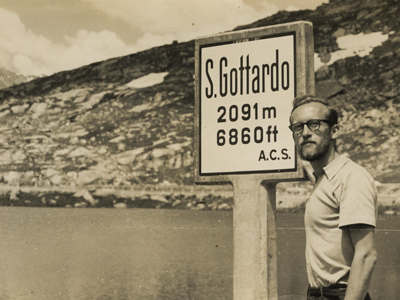
Dan
Once the two left England and got to France, they hitchhiked the rest of the way carefully plotting their route according to their hostel guide. Cars were still relatively rare in those days so when Basia and Dan got a ride it was usually a short one, and then it was back to walking. They argued the merits of walking vs. sitting on the side of the road: which was more likely to get them a ride? They had rucksacks, but small ones. They traveled light. They ate bread and cheese, and drank local wine, unencumbered by dietary anxieties. When faced with a high price for a pension or a meal, Basia called upon her memory of her aunt’s bargaining in a Persian market and beamed with pleasure when victorious. Dan started picking up French, and then Italian phrases, sometimes figuring out what was said, other times getting them quite wrong. When picked up by a driver in a Peugeot with front-wheel drive, traction avant, Dan understood, “Drive ahead!” And henceforth every decision to get going began with a command: Traction avant! It’s contagious; I now do the same.
And so it went, from café-au-lait to caffè latte to cappuccino, vin to vino, baguette to pasta. But it wasn’t just the food, it was also the local mores and manners. Dan was amazed to discover that in Europe hostels and pensions showed a lot of interest in your passports but none whatsoever in your marital status. Italian truck drivers, on the other hand, did notice, and Basia quickly realized that a fake wedding band protected her from amorous advances. All this was a matter of considerable frustration for a young man madly in love with a very disciplined Polish girl. Basia was interested only in her studies. And so the young vagabondi continued.
Along the way, Ford seamlessly weaves in a story of a very different journey. The tempo stays the same, the characters are as vividly and as sympathetically drawn but the tale is dramatically different. The same lovely Basia had lived through a traumatic experience beyond Dan’s imagination. Brought up in a loving family, in a home in an elegant part of a beautiful city, everything she knew suddenly came to a brutal end. Her father, brother and other men in the family were arrested without warning, taken away never to be seen again. Her mother, aunts and all the children were packed into sealed freight trains and forced out on a vast, empty steppe in Kazakhstan. There they eked out an existence until 1941 when Hitler attacked Stalin, thus creating, for a few people, a brief time when escape was possible.
Ford follows the family’s trials and travels as they moved across the Caspian Sea, settled for a while in Tehran, then Lebanon, Italy and finally England. He admires their strength, their courage, their resilience, their style, their fortitude and their faith.
By contrast, Ford recounts his own experiences during the war and notes, “the war I had enjoyed as a youngster was regarded somewhat differently by Europeans.” He is honest about the poverty and the primitive conditions that existed in many parts of the United States in the 1930s, but his family’s fortunes gradually improve, the Polish family by contrast is left dispossessed, scattered, and grieving.
It’s an extraordinary book, highly original, gripping, at once full of joy and of sorrow.
It is often said that love is the best teacher of a new language. Ford shows that is can be equally good at teaching history because love demands that you know a person. It is a very questionable sort of love if you show no interest. And love can also be quite selfish, in thought if not in deed. Ford ponders a difficult idea: “If Germany and Russia hadn’t invaded Poland… if 60 million people hadn’t died in that war… I would never have kissed that pretty girl on the road to Italy.”
CR


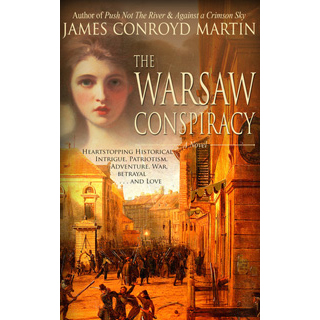
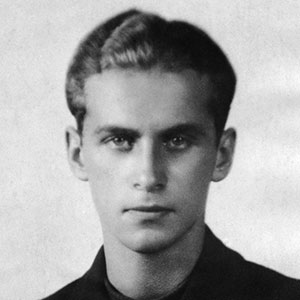
I thoroughly enjoyed Dan’s book and also your warm and engaging review Irene. Dan Ford has been a leading contributor on The Kresy-Siberia yahoo discussion group and has diligently researched all of the historical notes in his book which provide the context for Basia’s wartime experiences. This is a lovely story, also full of historical knowledge and detail, that we can add to the library of Sybirak literature. Thanks! Anna Pacewicz, Sydney
Thank you, Anna. I must say that Dan’s book ranks among my favorite books. My sisters, who are older than I, identified with Basia, and I certainly recognized my family in her story. And I’ve never seen this story told with such grace, charm and sensitivity. What a marvelous writer he is.